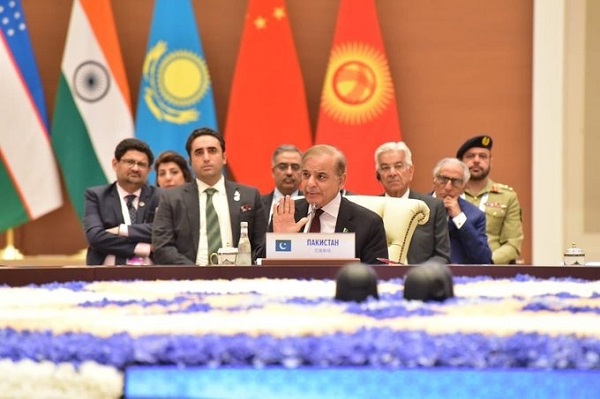Islamabad, (Asian independent) Floods may or may not be God-given. Pakistan claims they are the result of climate change to which its contribution is negligible. But they seem God-sent for their political class. Those in the government have taken to globe-trotting, trying to canvas relief. They visit the very Christian world that they otherwise vilify. Nobody talks of Islamophobia and by the way, self-respect.
They are successful, and how. From the UN Secretaries-General to Hollywood star and goodwill ambassador Angelina Jolie have descended on Pakistan to express sympathy and urge the world to rush funds and material.
For long years, the world kept urging Pakistan to “do more” in fighting terrorism. Now it is pleading with the world community to “do more”.
Relief diplomacy pays. For one, it takes the attention away from issues like terrorism, terror financing, and things with Pakistan that UN-mandated Financial Action Task Force (FATF) wants to scrutinize.
This diplomacy is done in style. Pakistani elite dress up in the most expensive foreign brands, incidentally produced by companies owned by the same Christians and Jews the Pakistani politicians ask their people to hate.
Its women are more thoughtful, though. While men flaunt their best dresses, junior Foreign Minister Hina Rabbani Khar was careful not to display her purses and handbags from world-renowned brands. She was seen not carrying any purse at all while escorting the UN Secretary-General through flood-ravaged areas. Reviled and trolled for her expensive taste, she now wants to be taken seriously as an international diplomat.
Her immediate boss, Foreign Minister Bilawal Bhutto Zardari, however, is more serious about diplomacy. He has been meeting American and European leaders who were offended by or had offended, former Prime Minister Imran Khan during the latter’s over three-year tenure.
Khan waited in vain for a phone call from US President Joe Biden till his last day in office and now continues to blame the US for an “international conspiracy” to oust him. He was voted out in the National Assembly in April earlier this year.
But the same Khan, the story in Pakistani media goes, did not pick up the phone from French President Emmanuel Macron. The latter was keen to end the diplomatic impasse created by Tehreek-e-Labaik Pakistan (TLP), the extremist Sunni Muslim body that wanted Pakistan to expel the French ambassador and stop trading with France on the issue of Charlie Hebdo cartoons against the Prophet in a French magazine. Pakistan did neither, though, but Khan kept pushing his Islamophobia bogey.
What is Khan doing these days? He has declared that neither economic crisis (Pakistan is struggling to get the full loan from the International Monetary Fund (IMF) for which his government had tried desperately) nor floods will prevent his campaign against the Shehbaz Sharif government.
He has, for good measure, added ‘war’ as an eventuality that will not dilute his campaign. War against who, by whom? One does not have to be a wizard to say that this is pointed at India.
The India factor is inevitable in anything happening in Pakistan. Khan bad-mouthed India when in power, now he has words of praise for Prime Minister Narendra Modi. It is now Bilawal’s turn to bad-mouth India, now that he is in power.
He told a French TV channel during his Paris visit that he had “not received help (as flood relief) from India, nor do we expect it”.
He forgot to mention that Modi had telephoned Sharif to express sympathy and support. But he did utilise the TV channel to raise the Kashmir dispute with India and call out the Modi government’s domestic policies, things that have no relevance or bearing on Pakistan’s floods, economic crisis or anything.
The Pakistani leadership cannot be unaware that India has a tradition of rushing, even to far-off countries and closer home, to Nepal, Afghanistan, Sri Lanka, and Bangladesh.
It is tempting to ask why the Khan government earlier and the Sharif government now, oppose any trade with India, although the same is advocated by Pakistan’s trading community and economic experts. They say trade with India would be to Pakistan’s advantage, especially in the current adverse times.
Otherwise known to take diktats from the all-powerful army, the Pakistani political class has found it convenient to ignore its advice even though it is being advocated by the current Army Chief, General Qamar Javed Bajwa. The army chief has been saying that it is time for Pakistan to shun geopolitics and take to geo-economics. But that does not win votes for Pakistani politicians.
The attitude is explained by the TV news grabs of Pakistanis destroying onions imported from Iran, because they are ‘Shia’ onions. Need one say more?








